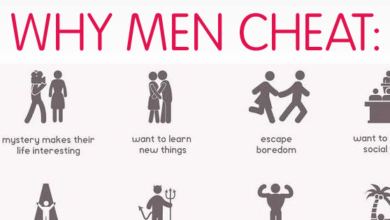
Introduction: The Silent Struggle
It’s easy to assume that when someone is unhappy in a relationship, they’ll simply leave. But in reality, countless individuals across all genders remain in relationships that no longer bring joy, peace, or growth. The reasons are rarely simple.
For some, fear outweighs freedom. For others, the weight of responsibility feels heavier than the promise of happiness. Unhappy relationships are not always defined by fights or abuse—they can also be marked by silence, distance, or the slow erosion of love. Yet still, people stay.
This isn’t a matter of weakness. It’s a reflection of complex emotions, social pressures, and practical considerations. To understand why individuals remain in relationships that no longer serve them, we must look deeper into the psychology of human attachment and the realities of life outside a partnership.
Fear of Loneliness: The Invisible Cage
One of the most powerful reasons people stay in unhappy relationships is the fear of being alone. Humans are deeply social creatures. Companionship offers comfort, security, and identity. Losing that bond—even when it has soured—can feel terrifying.
- Loneliness has been linked to increased risks of anxiety, depression, and even health problems.
- The thought of empty weekends, quiet nights, or facing milestones without a partner can feel overwhelming.
- Many fear they may never find another partner who understands them.
This fear can be especially strong for those who rely heavily on their partner for social interaction. Without a wide circle of friends or family, leaving may feel like stepping into a void. For some, staying in a strained relationship feels safer than confronting isolation.
Financial Dependence and Security
Relationships are not just emotional—they are often financial partnerships. The decision to leave an unhappy relationship is frequently complicated by money matters.
- Joint mortgages, loans, or shared businesses create tangled obligations.
- Concerns about affording life alone can keep people tied down.
- Those with fewer financial resources may feel trapped, especially if the partner is the primary earner.
According to Pew Research Center, financial strain is one of the biggest barriers to separation. Individuals fear losing their standard of living, dividing assets, or struggling with debt. In these cases, unhappiness feels secondary to survival.
The Pressure of Commitment and Family
Commitment can be both beautiful and binding. Many individuals stay in unhappy relationships because they feel duty-bound to keep their promises, protect family stability, or uphold cultural expectations.
- Parents may remain together “for the children,” believing separation would damage emotional well-being.
- Cultural and religious traditions often discourage divorce or separation.
- Fear of being seen as disloyal, irresponsible, or selfish can outweigh personal fulfillment.
This sense of responsibility can make people sacrifice their own happiness for the sake of others. While this may appear noble, it often leads to long-term dissatisfaction that quietly shapes every part of life.
Fear of Judgment and Social Stigma
Society still stigmatizes breakups and divorces, especially in certain communities. People are often told to “work harder” on relationships, even when the emotional cost is unbearable.
- Ending a relationship can attract criticism from family or friends.
- Individuals fear being labeled as failures or as people who “gave up too soon.”
- Cultural stigma surrounding singlehood can make people stay just to avoid judgment.
Because of this, many endure silent misery instead of facing the external scrutiny of leaving. It’s not just about personal happiness—it’s also about social reputation.
Emotional Investment and the “Sunk Cost” Fallacy
The longer someone spends in a relationship, the harder it becomes to leave. This is often due to the sunk cost fallacy, a psychological trap that convinces people that because they’ve already invested so much time and energy, leaving would make it all “wasted.”
- Years of memories, shared milestones, and sacrifices feel too valuable to discard.
- The hope that things will eventually improve keeps individuals waiting.
- Walking away feels like admitting a mistake, which many struggle to accept.
This mindset creates an emotional anchor that keeps people tied to relationships long after the happiness has faded.
Comparing Reasons: Why People Stay in Unhappy Relationships
To see the bigger picture, it helps to compare some of the most common reasons across all genders.
| Reason | Impact Across All Genders |
|---|---|
| Fear of Loneliness | Creates anxiety about single life, leading to emotional paralysis. |
| Financial Concerns | Shared assets, debts, or unequal income make leaving financially risky. |
| Family Pressure | Responsibility to children, parents, or cultural traditions can outweigh personal happiness. |
| Emotional Investment | The sunk cost fallacy keeps individuals clinging to past effort and memories. |
| Social Stigma | Fear of being judged by community, family, or peers discourages leaving. |
This table highlights how unhappiness is not enough to break bonds when fear, duty, and investment weigh heavily on the decision.
Fear of Starting Over
Leaving an unhappy relationship means facing the unknown. For many, starting over is scarier than staying put.
- The dating world feels intimidating, especially after long relationship
- Fear of rejection grows stronger with age or self-doubt.
- Building trust from scratch feels exhausting.
As Psychology Today notes, individuals often avoid breakups not because they’re satisfied but because they dread the uncertainty of rebuilding. Staying becomes the “easier” choice.
When Comfort Outweighs Happiness
Not all unhappy relationships are filled with conflict. Some are simply dull, distant, or stagnant. Yet people stay because they are comfortable with the familiarity.
- Routines feel safe, even when unfulfilling.
- The predictability of an unhappy relationship seems less frightening than change.
- Many convince themselves that “good enough” is better than starting over.
This false sense of security keeps people locked in mediocrity, mistaking comfort for love.
Fear of Hurting a Partner
Sometimes individuals stay not for themselves, but out of concern for their partner’s feelings.
- Guilt about causing emotional pain prevents action.
- Fear of triggering breakdowns or anger keeps people silent.
- Compassion can override self-interest, leading to sacrifice.
While this may feel selfless, it prolongs suffering for both sides. The partner who wants to leave denies themselves freedom, while the other may remain unaware of the growing disconnect.
The Human Dilemma: Strength vs. Vulnerability
At the heart of all these reasons is a larger dilemma. People are often taught that endurance equals strength and vulnerability equals weakness. Admitting unhappiness, seeking help, or choosing separation challenges these deeply ingrained beliefs.
True strength, however, lies in honesty—with oneself and with one’s partner. Choosing happiness does not mean choosing selfishness. It means recognizing that love cannot survive where silence, fear, and obligation have taken root.
Signs Someone Is Staying in an Unhappy Relationship
Unhappiness in a relationship is rarely loud. It does not always show up as constant fights, dramatic breakups, or bitter arguments. Often, it creeps in quietly—through silence, routine, and subtle shifts in behavior. Individuals may not even admit to themselves that they’re unhappy, but their actions reveal the truth.
Recognizing these signs is important because it allows people to reflect on whether they’re staying out of love—or out of fear, habit, or obligation. Below are the most telling signs that someone is trapped in an unhappy relationship.
1. Emotional Withdrawal and Disconnection
One of the first indicators of unhappiness is emotional distance. When someone feels disconnected, they begin to retreat inward.
- Conversations become shallow, limited to practical topics like bills, chores, or schedules.
- Genuine sharing of feelings, dreams, or fears becomes rare.
- Affection such as hugging, kissing, or saying “I love you” feels forced or disappears.
This disconnection often creates a sense of living parallel lives—two people under the same roof, but in completely different worlds.
2. Irritability and Constant Tension
Unhappiness doesn’t always show as sadness—it often shows as irritation.
- Small disagreements escalate quickly.
- Criticism and defensiveness replace patience and understanding.
- The atmosphere feels tense, even during neutral conversations.
This irritability doesn’t necessarily mean the partner is “difficult”—it usually reflects frustration from unmet needs, unspoken resentment, or suppressed unhappiness.
3. Avoidance of Intimacy
Physical intimacy is a key part of many relationships, but when unhappiness sets in, intimacy often suffers.
- People may avoid closeness by claiming exhaustion or stress.
- Intimacy becomes mechanical, a duty rather than an act of love.
- Some may turn to external distractions—work, hobbies, or even technology—to replace emotional closeness.
This doesn’t mean every lull in intimacy equals unhappiness. But a consistent and intentional avoidance of closeness is often a red flag.
4. Loss of Excitement About the Future
Happy relationships are forward-looking. Couples plan trips, dream about milestones, and set goals together. In unhappy relationships, this vision fades.
- Future plans feel forced, vague, or nonexistent.
- Discussions about marriage, children, or long-term goals cause discomfort.
- Partners stop imagining life together in five or ten years.
The absence of shared dreams often signals that someone is staying out of obligation, not joy.
5. Social Withdrawal and Isolation
When someone feels stuck in an unhappy relationship, they often pull back from friends and family.
- They avoid social events to escape questions about their relationship.
- They may lie to others, pretending everything is fine.
- Shame or embarrassment keeps them from opening up about their struggles.
Isolation makes it harder for them to gain perspective, which in turn deepens their feeling of being trapped.
6. Overreliance on Distractions
People stuck in unhappy relationships often fill the emotional void with other activities.
- They bury themselves in work, taking on extra hours to avoid being home.
- Entertainment—TV, gaming, social media—becomes an escape.
- Some may turn to unhealthy coping mechanisms like alcohol or overeating.
Distractions may offer temporary relief but never resolve the root cause of unhappiness.
7. A Constant “Stuck” Feeling
Perhaps the most painful sign is the quiet sense of being trapped. Individuals often:
- Think frequently about leaving but never act on it.
- Feel torn between guilt and desire for freedom.
- Experience cycles of hope (“things will get better”) followed by disappointment.
This push-and-pull creates emotional exhaustion, making it even harder to make clear decisions.
8. Lack of Personal Growth
Healthy relationships encourage growth. In unhappy ones, individuals often feel stagnant or even diminished.
- Personal ambitions are sidelined to avoid conflict.
- Creativity and curiosity fade.
- They feel more like caretakers, roommates, or co-workers than romantic partners.
This erosion of self can lead to identity loss, where someone no longer recognizes who they are outside the relationship.
9. Guilt as the Glue Holding Things Together
A final but powerful sign is when guilt—not love—keeps someone from leaving.
- They stay because they fear hurting their partner.
- They feel guilty about abandoning shared history.
- They believe they “owe it” to their partner to endure.
While compassion is important, a relationship built on guilt is rarely sustainable in the long run.
Why These Signs Matter
Recognizing these signs isn’t about shaming anyone. It’s about awareness. People often endure years of unhappiness simply because they haven’t named their reality. Seeing the signs clearly is the first step toward making healthier, more fulfilling choices—whether that means repairing the relationship or finding the courage to walk away.
Recognizing these signs can help individuals reflect on whether they are staying for love—or for fear.
Breaking the Cycle: Pathways to Change
Staying in an unhappy relationship does not have to be permanent. Transformation begins with courage and clarity. Here are key steps:
- Normalize Vulnerability
- People must feel safe admitting unhappiness without shame.
- Therapy, open communication, and supportive communities can break the stigma.
- Strengthen Support Systems
- Relying solely on a partner for emotional needs creates dependence.
- Building friendships, family connections, and hobbies reduces fear of loneliness.
- Create Practical Roadmaps
- Seek financial advice before separation.
- Explore counseling—individually or as a couple.
- Plan step-by-step exits instead of abrupt decisions.
These steps empower individuals to make choices based on growth rather than fear.
Conclusion: Staying Isn’t Always Strength
Staying in an unhappy relationship may look like resilience, loyalty, or sacrifice. But more often, it reflects fear, obligation, or uncertainty.
Unhappiness does not mean weakness—it means being human. The real challenge is creating a world where people feel safe to choose joy, even if that means letting go.
At the end of the day, love should not feel like endurance. It should feel like partnership, freedom, and growth. Choosing to leave does not erase the past; it opens the door to a future where happiness is possible again.









